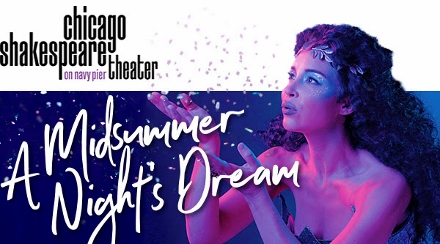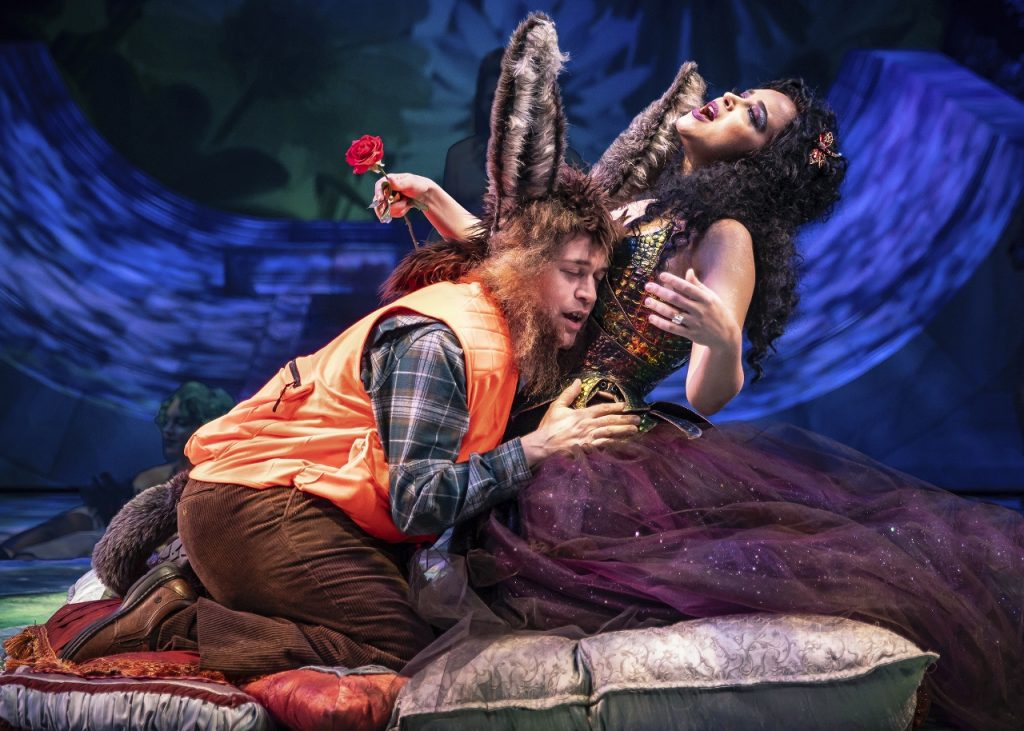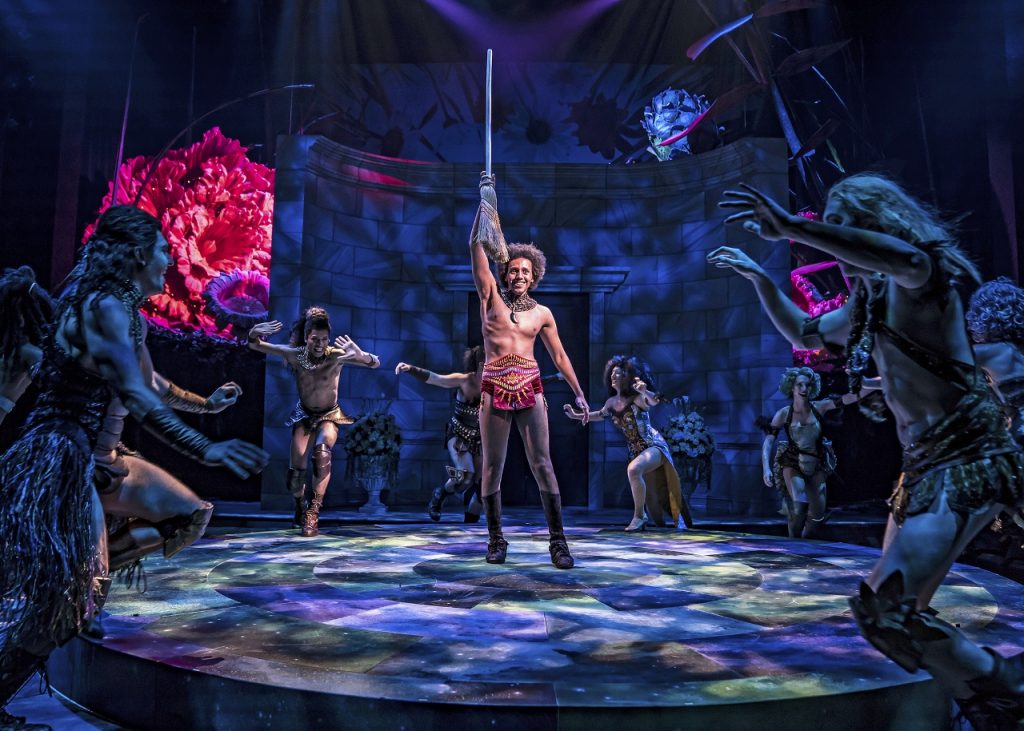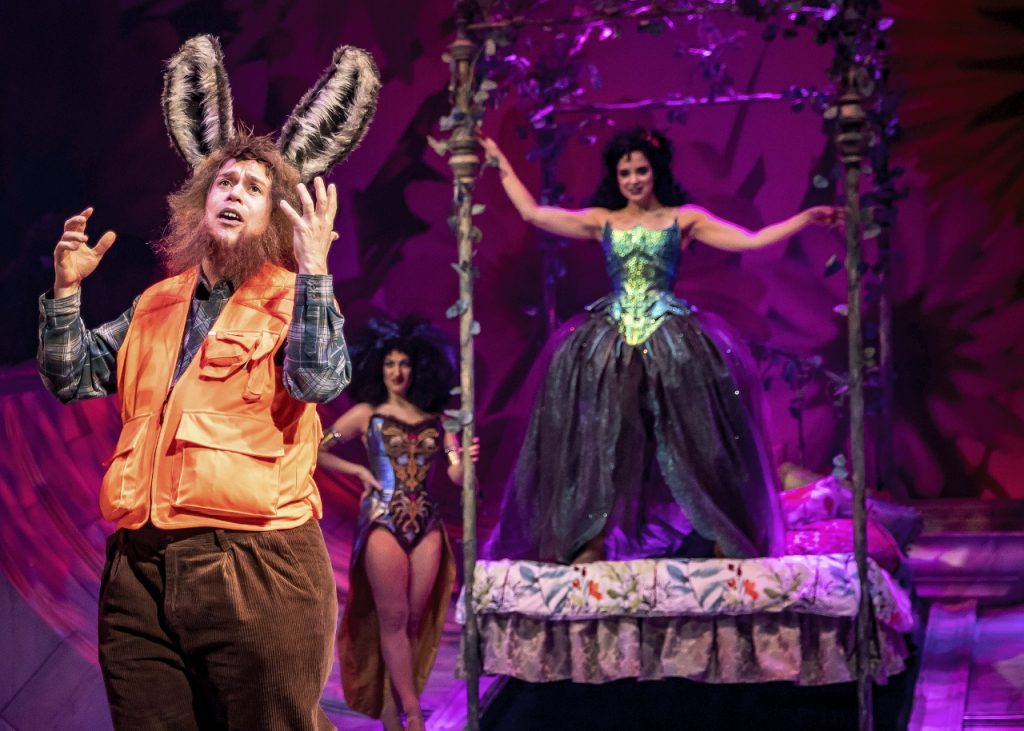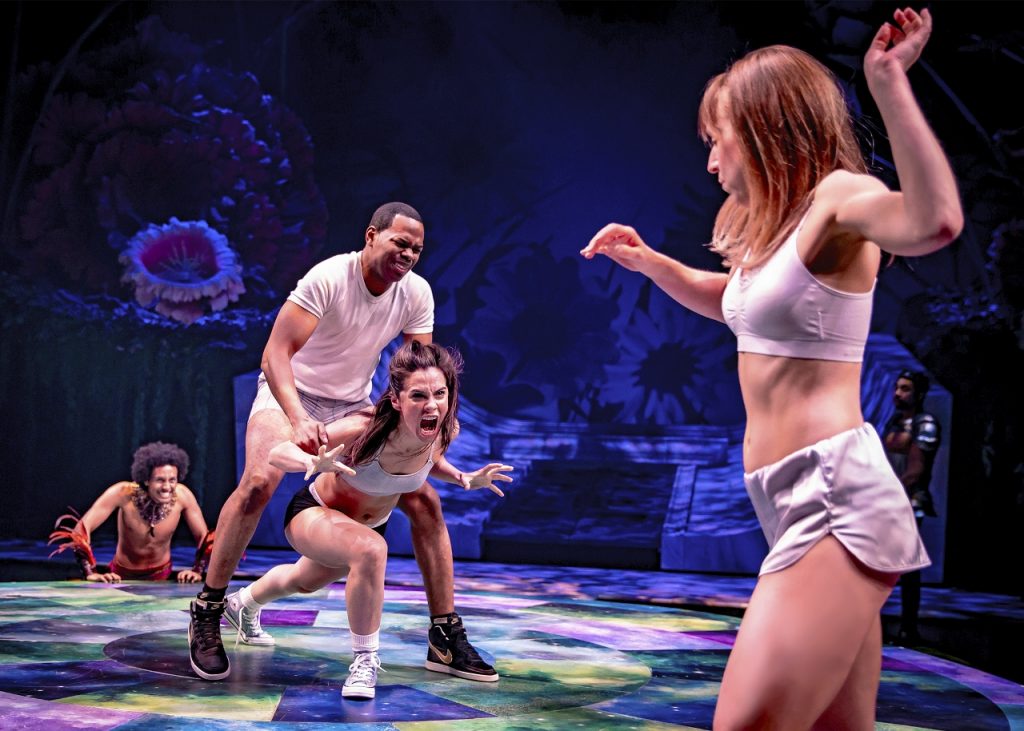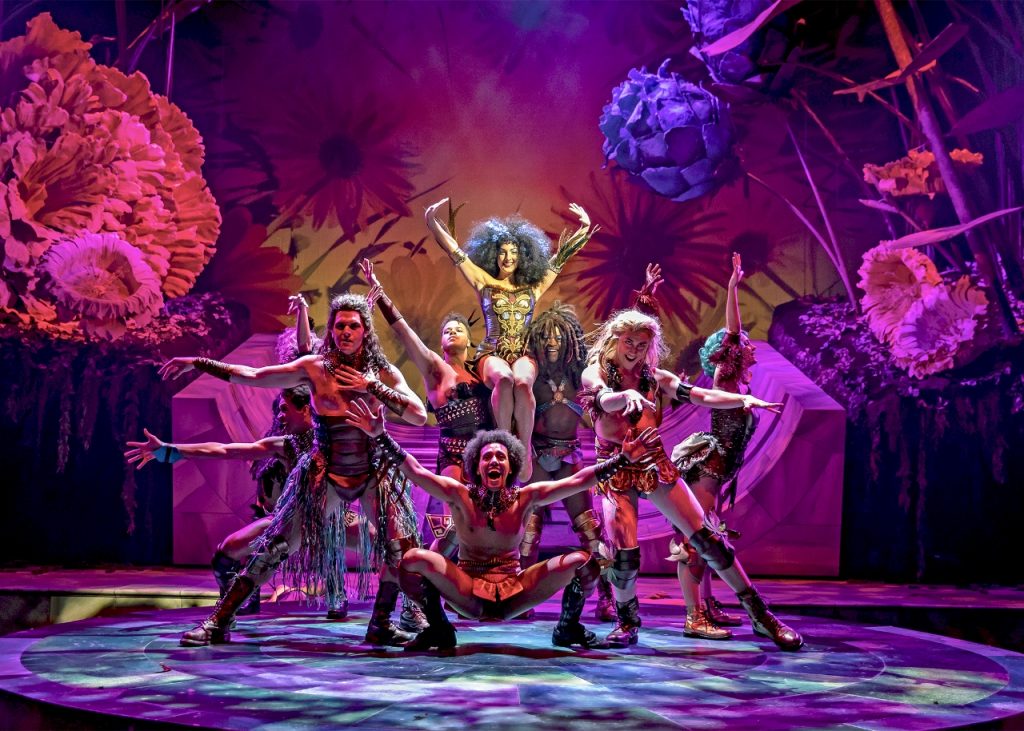A SPORADIC DREAM
There’s an epiphany near the end of Shakespeare’s celebration A Midsummer Night’s Dream when the mixed-up quartet of wayward lovers who’ve been confoundedly mashed up over the course of a long July night discover they’re awake! They jump for joy over the unearned deliverance. It’s an absolutely natural response to the very complex “dream” from which they escape. And it’s one of the few moments in Joe Dowling’s new staging when the play’s lyrical power can hold its own with the comedy.
Rollicking to an eclectic backdrop of rock, doo-wop and jazz, Dowling’s sturdy, if uninspired, 175-minute revival puts 22 performers through sporadically charming paces as it commemorates the 20th anniversary of his last Dream — which marked Chicago Shakespeare’s first season on Navy Pier.
Of course, the lovers’ nearly-narrow escape from the many blunders of a busy night is just the last of repeated insane incidents. The fairies of the Athenian woods busily stirred up spells that tested the love of these four young “dreamers.” Contagious and at several times uncontrolled, a flower’s power has affected both semi-mythical courtiers and ham-handed city folks out to rehearse a silly comedy (only to discover that their hammiest actor has become an ass).
Meanwhile, the industrious fairies must work out their own internecine quarrel until Titania yields to Oberon the Indian boy for whose custody all nature is out of sorts. In turn, these very contemporary lovers must sort themselves out, venting old grievances in order to confirm their current romantic liaisons.
All these culture-clashing, class-conscious doings get beautifully illustrated by Todd Rosenthal’s marble arch — to connote ancient Athens — and the scenic floribunda: outsized, multi-colored flowers to make the mortals and fairies look comparatively tiny. Inspired by the crazed distortions of Renaissance painter Hieronymus Bosch, it’s a fine take on the Bard’s quirky version of what Ingmar Berman called “the smiles of a summer night.” Seldom has Shakespeare’s lovely line “How quickly bright things come to confusion!” been so engagingly confirmed!
If the look fits, the sounds are less apt. Dowling has found worthy talents, several of whom are the right people to make the right moves and several who aren’t. Edward O’Blenis makes a magisterial Theseus, even though here he doesn’t get to deliver Theseus’s wonderful speech about the ties that bind lovers, lunatics and poets. Alexandra Silber’s Hippolyta blends regality and mythology in every stately gesture. (They double as fairy feuders Titania and Oberon, straddling two of the play’s three realms.)
The other members of the court include, of course, four seemingly interchangeable lovers who must fight to prove they’re not. Melisa Soledad Pereyra, Tyrone Phillips, Eric Schabla, and Cristina Panfilio make suitable pawns for Sam Kebede’s hyper-sprightly Puck. Overall their hijinks feel more forced than funny. Their cage-match quarrels teem with an over-abundance of double takes, tag-team wrestling, and pratfalls.
Fabio Toblini dresses the fairies like a feral undiscovered Amazonian tribe. Cavorting enough to make their own moonlight, the imps are true to Shakespeare’s “fierce vexation” of deepening dreams.
Among the “rude mechanicals,” who gleefully take “selfies” of their clumsy rehearsal, the troupe’s unwitting clown, the stentorian Bottom, is played by Grey’s Anatomy alum T. R. Knight: His fatuous foolishness pleased the opening night crowd, but where it crucially counts, Knight never quite managed to register the dreamer’s remorse: This still-transformed weaver should collapse a bit as he dimly recalls being feted by the most beautiful fairy in Greece. He quickly returns to his thankless caricature of a blowhard actor who’s convulsively overwrought in the jocund “Pyramus and Thisbe” travesty, a mockery of the writer’s own Romeo and Juliet that was too heavy-handed to count as comic relief rather than a perverse prolongation of the play.
But Shakespeare remains the rising tide that lifts all boats. His “dream” teems with marvelous make-believe, a palpable love of summer’s glorious over-birth, and a compassionate look at the well-meant mistakes lovers make when caught up in so much re-creation. As mid-winter’s madness beckons, it seems an apt antidote and a well-deserved dream.
photos by Liz Lauren
A Midsummer Night’s Dream
Chicago Shakespeare Theater
The Jentes Family Courtyard Theater on Navy Pier, 800 E. Grand Ave.
ends on January 27, 2019
for tickets, call 312.595.5600 or visit Chicago Shakes
for more shows, visit Theatre in Chicago
